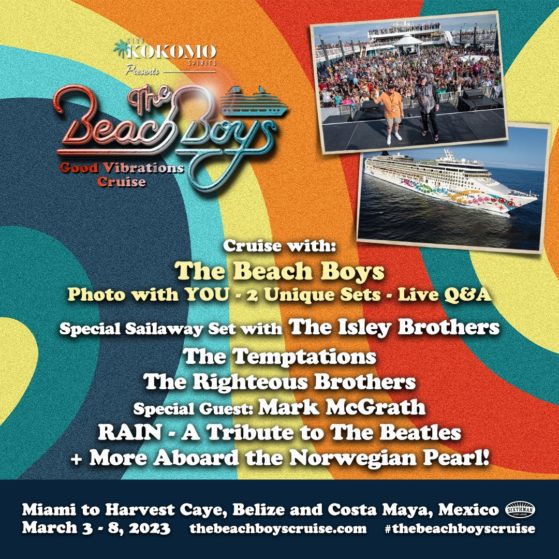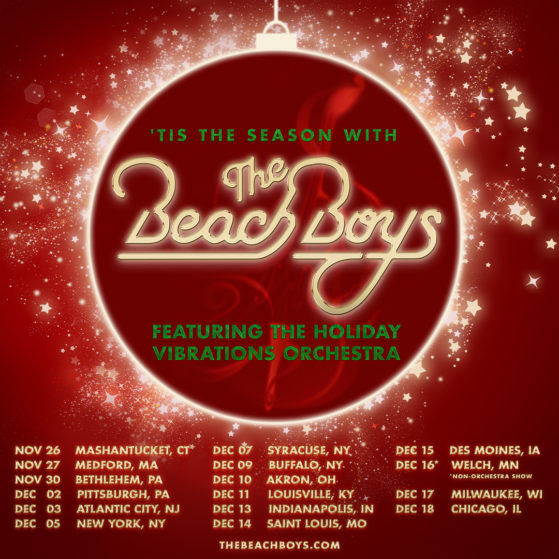
THE GAZETTE – OCTOBER 3, 2016
At 75, Mike Love still looks like a Beach Boy. His eyes are clear and blue, his baseball cap still intact, and he’s smiling the same slightly mischievous smile seen 55 years ago while clutching a surfboard on the group’s debut album.
His recently published autobiography, “Good Vibrations: My Life as a Beach Boy,” is a New York Times best-seller.
On a blue sky afternoon in Colorado Springs last week, Love took time out to talk about the experience of being the front man of a famously factious band and what it felt like to tell his side of the story.
Question: Was writing the book difficult?
Answer: It was a challenge. You need to discuss things you don’t always want to talk about: the death of loved ones, the implosion of the group due to drugs, mental illness. I did an audio recording of the book in my home studio and had to read it aloud. There were a number of places where I had to take a break and regain my composure.
Q: Charles Manson makes an appearance?
A: A lot of the media have focused on that, but it’s a very small part of my own story. It was my cousin, Dennis Wilson, who had Manson as a roommate. I met Charles Manson just once as far as I can recall. He was a demonic person, way too weird for me.
Q: You tell a story about the first time Dennis hears girls screaming for the Beach Boys. He thinks there’s a fire.
A: We were kind of the first rock ‘n’ roll boy band. There were the Everly Brothers, but they were a duet; there were Elvis and Little Richard, Chuck Berry – the early rock ‘n’ roll icons. We were a group who wrote and sang our own songs. That was not that common.
I can’t remember any other boy band at the time, but soon those four guys from Liverpool showed up. That changed things.
Q: You talk about being a front man and how being a Beach Boy never gets old.
A: It’s pretty remarkable. We started in ’61, and ’62 with “Surfin’ Safari” … to see those songs still resonate with all ages more than half a century later is pretty incredible.
Q: You wrote the song “Good Vibrations” in 20 minutes, while driving?
A: Just the lyrics. It’s a poem about a girl who is all into peace and love, a kind of hippy chick. Flower power was going on in those days; it was the summer of love. Brian Wilson came up with a track that was so unique and I thought the words had to create a bridge between its uniqueness and the public. The one thing I knew that would get traction with everyone was the connection between a boy and a girl and the good vibrations that pass between them.
Q: Did you have a sense in ’63 or ’64 when Brian stopped touring with the band that something was seriously wrong?
A: It was more an emotional problem for me than anything else. Brian is my first cousin, the guy I co-created those songs with. He played the bass and had this fantastic voice, but a lot of people can play the bass and even sing. From a technical and musical standpoint, it wasn’t as challenging as it was from an emotional standpoint.
Q: What do you think it is about your music that plugs into the American story?
A: First of all, there’s the fact that we’re from California, which is a sort of microcosm of the country as a whole. There’s also the fact that we write about cars and surfing – there’s a uniqueness to the subject matter.
The big thing is the harmonies. With the Beach Boys, that’s the secret, essential ingredient: the warmth of those harmonies. There’s an implicit positivity to harmony – the word itself says it all – and that’s what transcends borders and generations, even language barriers. Places where people don’t have a clue what we’re talking about, they understand the harmonies.
Q: In a lot of versions of the Beach Boy story, you’re vilified.
A: I honestly think that has to do with drugs. I admit to drinking plenty and smoking my share of pot, but I never progressed beyond that like so many have.
There were people who thought it was cool to turn Brian Wilson on to LSD, but what they didn’t understand is that different people react to it in different ways. Just as there are some people who can drink and be perfectly fine socially, there are others who alcohol ruins their lives. It’s the same with drugs. Some people are damaged permanently by doing drugs. I was not in favor of the effect drugs were having on my family members, and so I became sort of a target.


